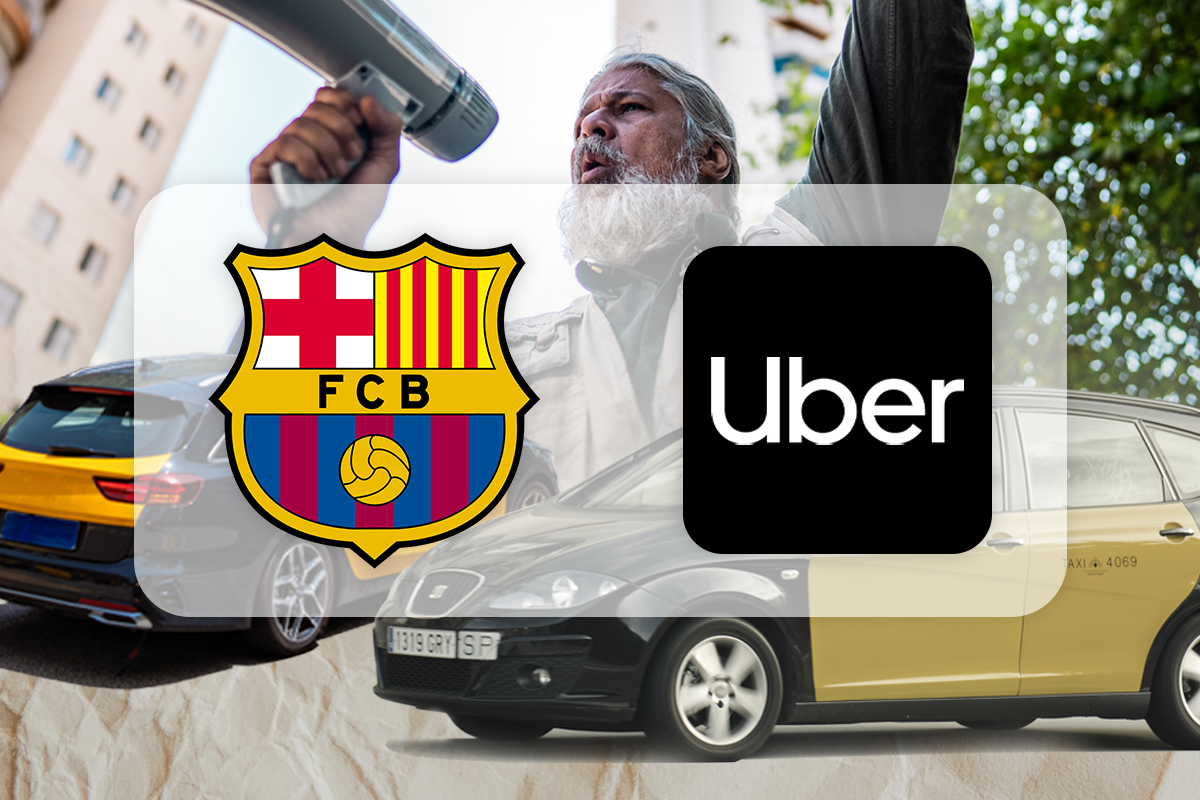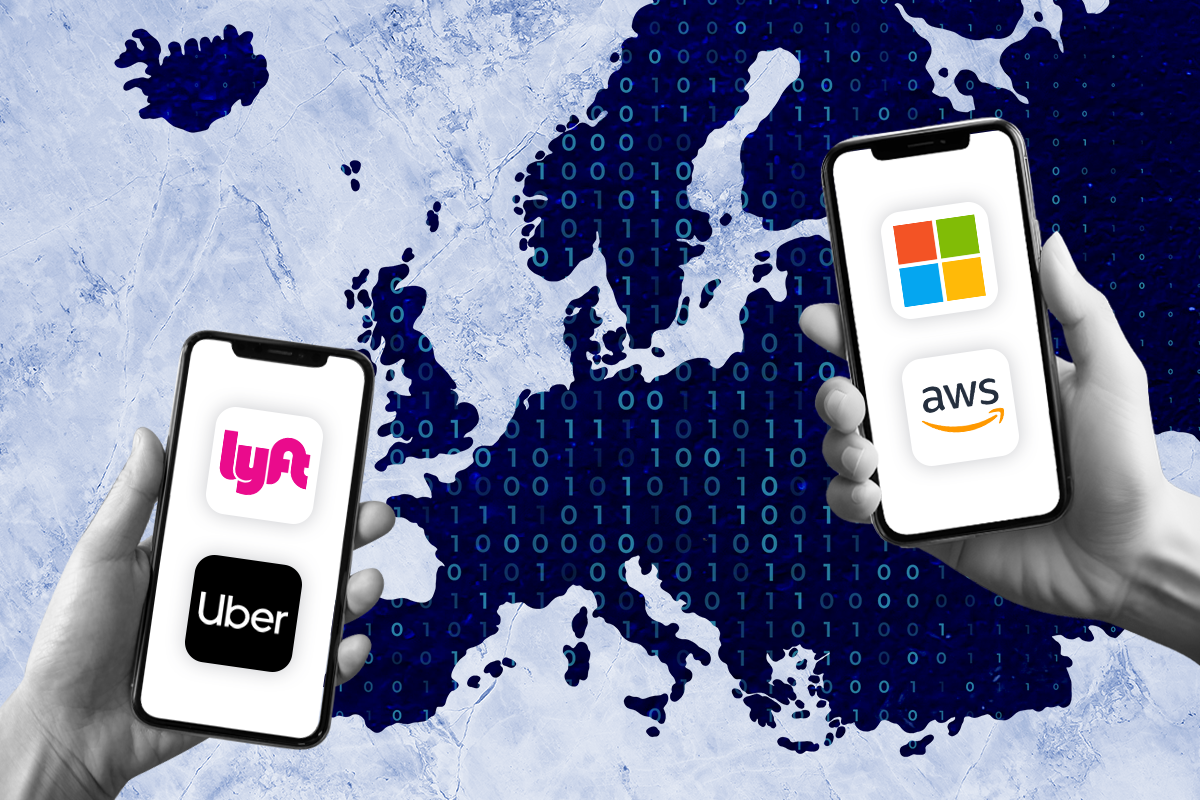
Barça’s Uber Deal Sparks Taxi Strikes
As protests erupt in Spain, Uber’s partnership with one of the world’s most iconic clubs shows how global ride-hailing platforms are embedding themselves into Europe’s cultural and civic life.
In a previous article, Divide and Conquer, we described how global ride-hailing giants like Uber and Bolt use what we called a generational Trojan horse. Their strategy goes far beyond cheap rides or clever technology. It is about shaping habits, winning the loyalty of younger generations, and embedding themselves into everyday life. Once that loyalty takes hold, towns and cities begin to lose control of their transport identity.
Uber’s latest partnership with FC Barcelona shows this strategy in full view. The deal has already triggered protests and strike plans from taxi drivers across Spain, who see it not just as a business threat but as a cultural one. For decades, the Catalan club has symbolised local pride and independence. To many, sharing that identity with a Silicon Valley platform feels like crossing a line.
But this is not an isolated event. It is part of a larger pattern—one that has been unfolding across Europe and beyond.
- In Berlin, Uber has renamed the Mercedes-Benz Arena the Uber Arena, the Verti Music Hall the Uber Eats Music Hall, and even the public square around them Uber Platz.
- In France, the country’s top football division became Ligue 1 Uber Eats for four years.
- In Marseille, Uber was the main shirt sponsor of Olympique de Marseille.
- In the UK, it sponsored Love Island, a cultural magnet for younger audiences.
- And globally, Uber is now the official rideshare and delivery partner of the Los Angeles 2028 Olympic and Paralympic Games.
Each move connects Uber’s brand with institutions that define public life: football clubs, arenas, television, even national events. These are not random sponsorships. They are psychological anchors designed to make Uber feel native to the places it enters.
The same strategy extends into entertainment. Uber has become a near-permanent fixture in popular culture: cars arriving in Netflix dramas, “Your Uber is here” notifications in HBO thrillers, and Uber Eats bags casually placed in Disney+ and Amazon Prime scenes. Each appearance normalises the brand as an everyday utility: no longer foreign, simply part of modern urban living. When a company’s logo becomes a storytelling prop, it stops being a service and becomes a social symbol.
Bolt follows a similar path, though on a smaller scale. Its partnership with Forest Green Rovers, Europe’s most eco-friendly football club, gives it a “green and local” narrative aimed at the same generation Uber courts through lifestyle glamour. Across Europe’s towns and cities, the goal is clear: capture the next generation’s imagination and you capture the mobility future.
For local taxi and ride-hailing operators, this fight is no longer about fares or app features. It is about identity and control. Once citizens grow up believing that global apps are the natural way to move, local decision-making, pricing, and data sovereignty gradually disappear. By the time anyone notices, the invasion is already complete.
Uber and Bolt are here to stay. They are powerful, well-financed, and deeply embedded in popular culture. But Europe still has a choice. Towns and cities can either continue importing their mobility future from Silicon Valley, or they can build their own foundations and protect local independence.
That is exactly what eCabs Technologies stands for: a European-built platform that helps local operators modernise, scale, and stay independent under their own brands. Because mobility, like culture, should remain part of a town or city’s identity, not something rented from abroad.
And the opportunity is vast. The global taxi and ride-hailing industry is growing by more than 15% every year, proving that the future of urban mobility is far from settled. The question is not whether this growth will happen… but who will own it.
Matthew Bezzina, CEO & Founder




